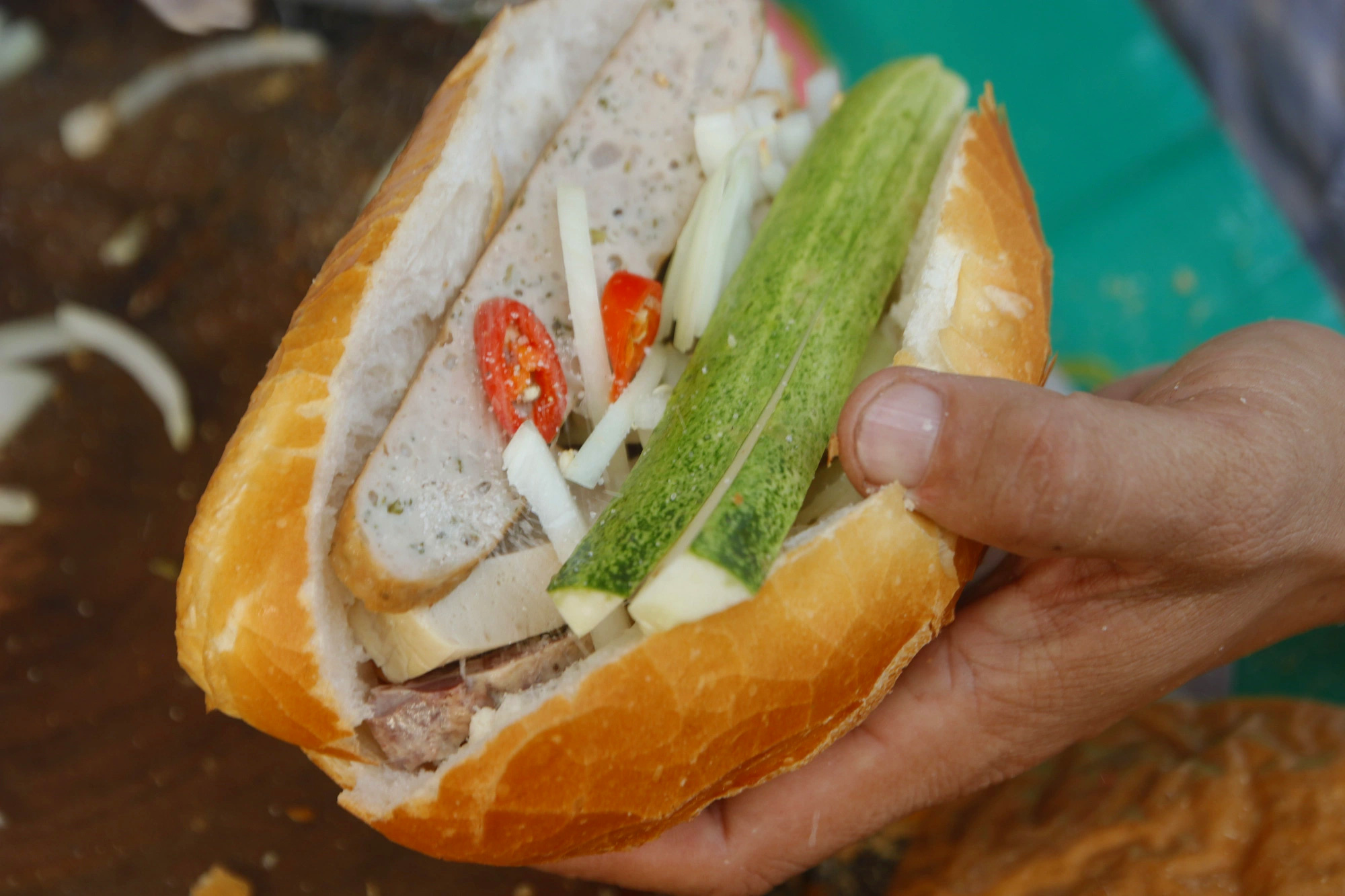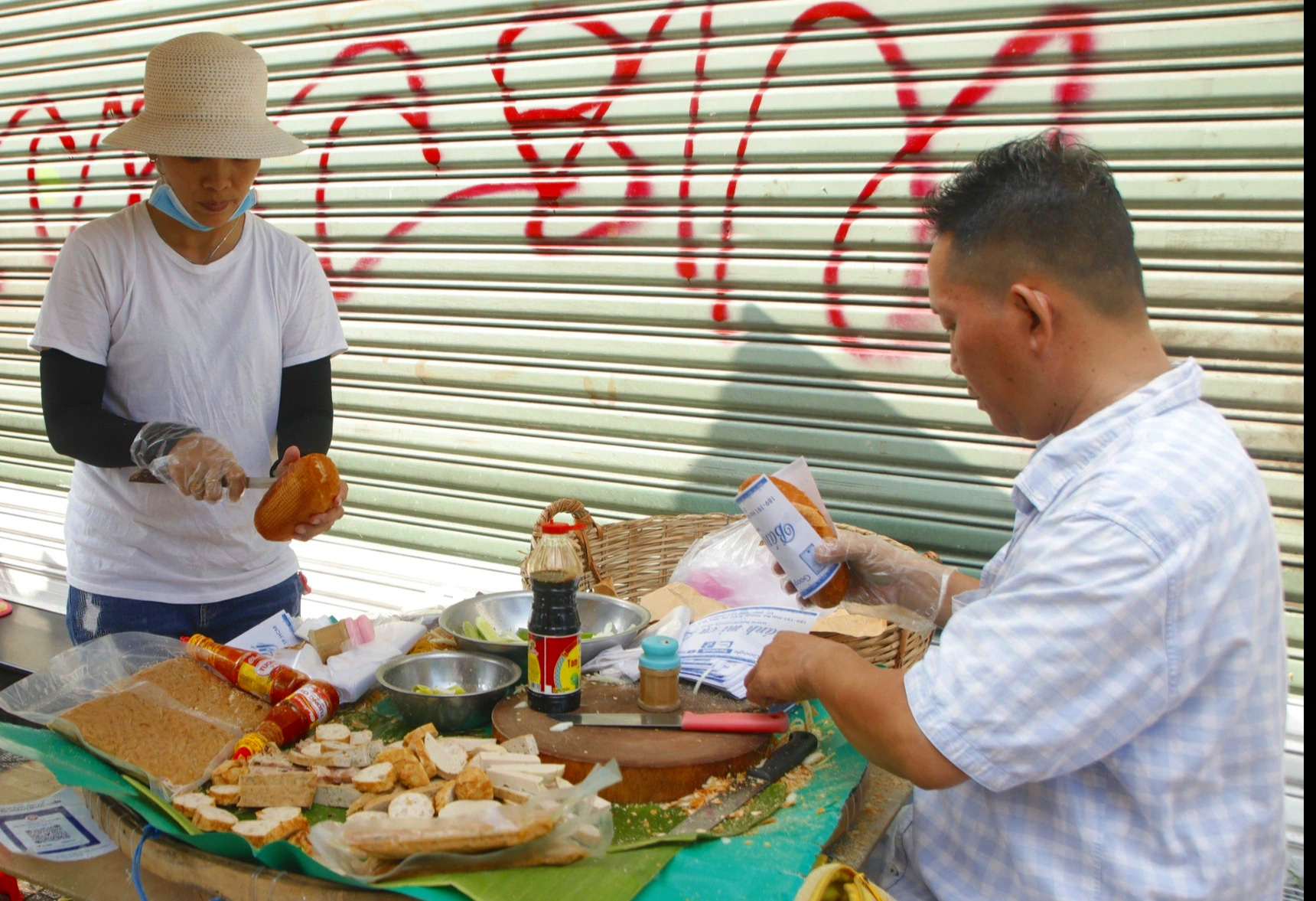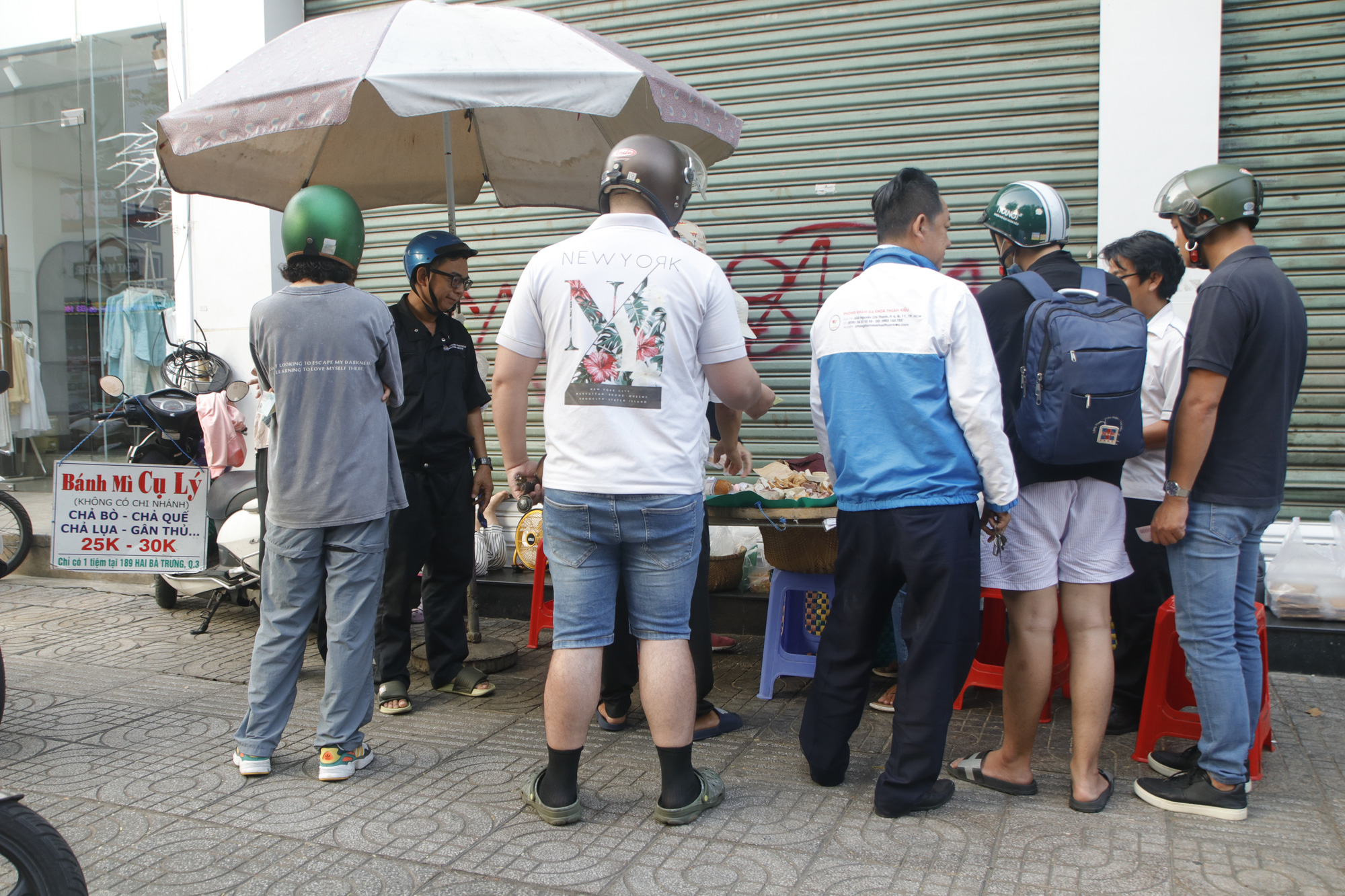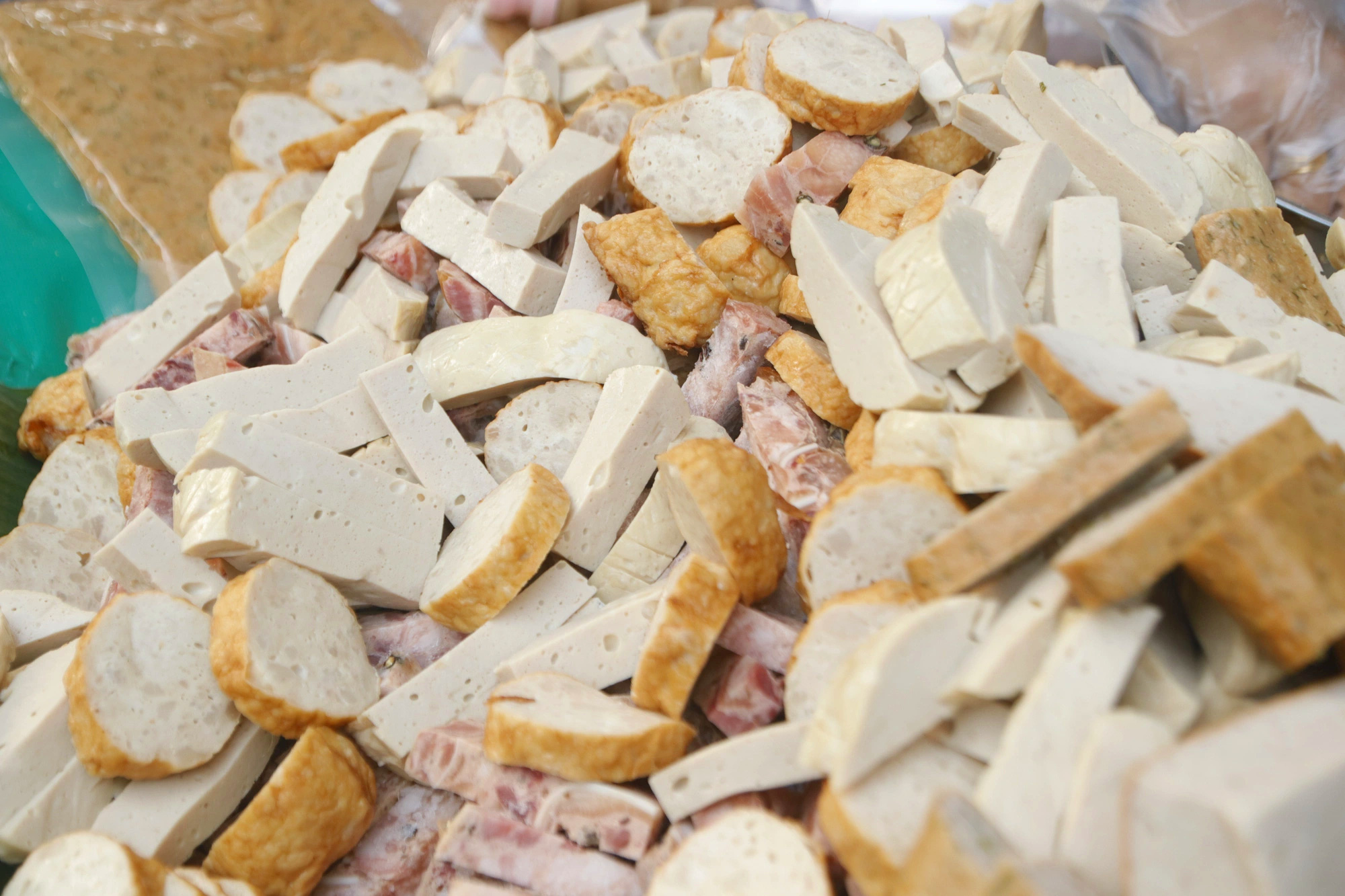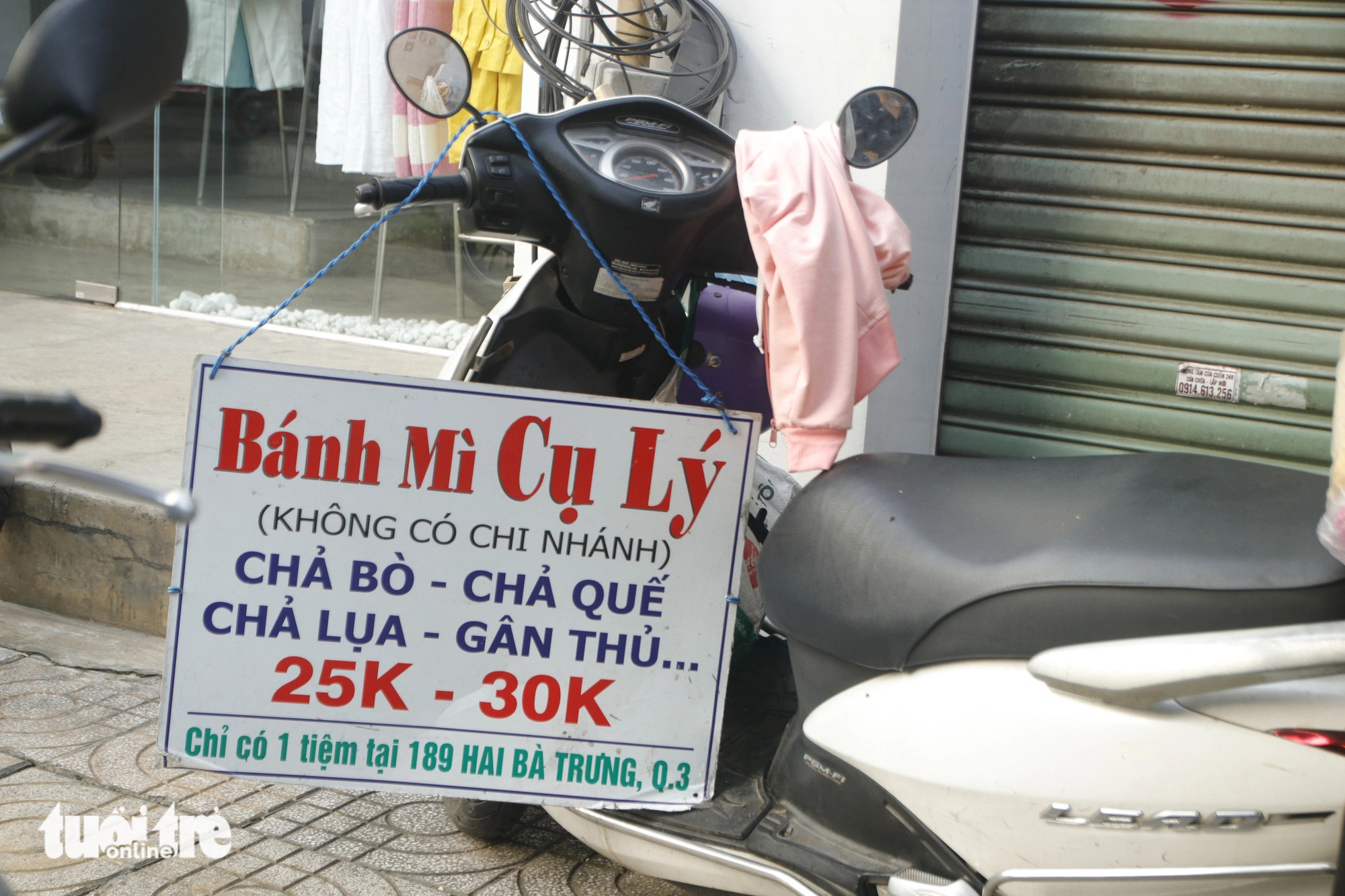The bánh mì (Vietnamese bread) stall of Cụ Lý has been in business for over 70 years in Ho Chi Minh City, making it one of the most popular and time-honored sandwich brands in the southern metropolis.
The Vietnamese record organization VietKings recognized Cụ Lý’s bread stall as one of the top 10 oldest and most famous sandwich stands in Ho Chi Minh City during Vietnam’s first-ever Banh Mi Festival in March and April last year.
The majority of Cụ Lý’s customers are office workers and students looking for a hearty breakfast.
In addition to its bread, Cụ Lý’s is also known for its wide selection of chả (Vietnamese pork rolls).
A family tradition
On weekends, the line for Cụ Lý’s begins forming at 6:00 am when hungry customers gather on the sidewalk of Hai Ba Trung Street in District 3, eagerly waiting for the stall to open.
Around 6:15 am, Nguyen Hoang Quoc Thien, the current owner of Cụ Lý’s, sets up a bamboo tray on the sidewalk covered with banana leaves to display the wide array of chả for sale.
“It’s quite crowded, so there might be a bit of a wait,” one middle-aged female customer remarked amidst the crowd.
“Hold on, just a moment, beauty,” Thien quickly answered back.
|
|
| Cụ Lý’s 'bánh mì' stall on Hai Ba Trung Street in District 3, Ho Chi Minh City. Photo: Ho Lam / Tuoi Tre |
Cụ Lý’s iconic bread tray is a familiar sight for local residents who have watched the stall continuously grow in popularity over the past 70 years.
Originally hailing from Vietnam’s northern region, Cụ Lý began selling bread in Alley 191 down Hai Ba Trung Street more than seven decades ago.
Thien, now the third generation to run the stall, considers it an honor to uphold the family legacy.
“Cụ Lý is my grandfather,” Thien said.
“Then my uncle took over but decided to stop after a few years.
“Then it was my turn. I’ve been selling bánh mì here for almost two decades now.”
|
|
| Customers crowd Cụ Lý’s 'bánh mì' stall on Hai Ba Trung Street in District 3, Ho Chi Minh City. Photo: Ho Lam / Tuoi Tre |
500 loaves every morning
Reflecting on his commitment to the bakery, Thien emphasized his appreciation for the connection between bánh mì and Vietnamese culture.
He also shared his deep appreciation for the community support he has received over the years.
During the bustling morning hours, Cụ Lý’s bread stall sells over 500 loaves, each priced at VND25,000-30,000 (US$1-1.2), and approximately 40-50kg of chả.
“I often come here to buy breakfast before heading to work,” said Thien Long, a loyal customer who works as a security guard, underscoring his decades-long relationship with Cụ Lý’s.
|
|
| The different types of ‘chả' (Vietnamese pork rolls) served at Cụ Lýs 'bánh mì' stall on Hai Ba Trung Street in District 3, Ho Chi Minh City. Photo: Ho Lam / Tuoi Tre |
In Long’s opinion, the array of chả at Cụ Lý's offers a uniquely diverse range of flavors, requiring time and attention for customers to fully appreciate the subtle nuances of each type.
The fillings of the sandwiches at the stall consist of five varieties of chả, namely chả bò thì là (Vietnamese beef bologna with dill), chả quế (deep-fried cinnamon-flavored pork rolls), chả chiên (deep-fried pork rolls), chả lụa (pork rolls), and giò thủ (brawn).
They are unique in that they exclude pâté, butter, and pickles, while featuring onions, cucumbers, and chilies instead.
Thien attributes this to the stall’s northern origin and its dedication to retaining the original family recipe from the business’ inception.
|
|
| A modest sign for Cụ Lý’s 'bánh mì' stall hangs on a motorbike. Photo: Ho Lam / Tuoi Tre |
“I omit pâté and butter as my sandwich already features a generous amount of chả. I use onions to complement its flavors,” the owner explained.
All of the ingredients used at Cụ Lý’s are handmade by Thien’s family, who wake up at 2:00 am every day to begin preparations.
To ensure freshness, the bread is sourced from a trusted bakery and brought to the stall every half hour, ensuring its warmth and crispness.
According to Thien, many people enjoy his bread for its delicious taste, while others come to enjoy the nostalgia associated with the bustling streets of the city center.
“Numerous regular customers purchase my sandwiches and then linger nearby to enjoy their meals amongst the cityscape,” he said.
Like us on Facebook or follow us on Twitter to get the latest news about Vietnam!



